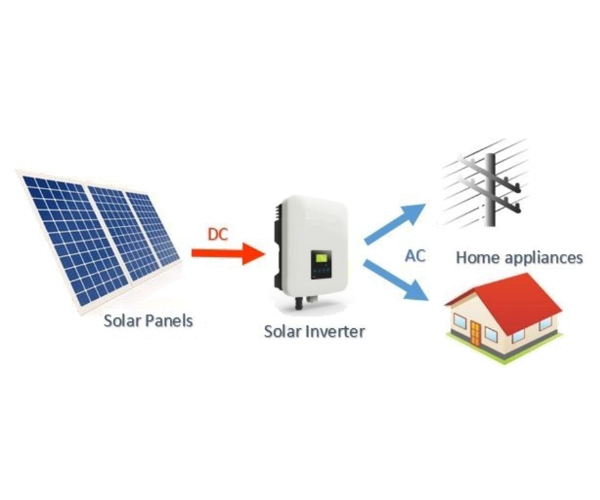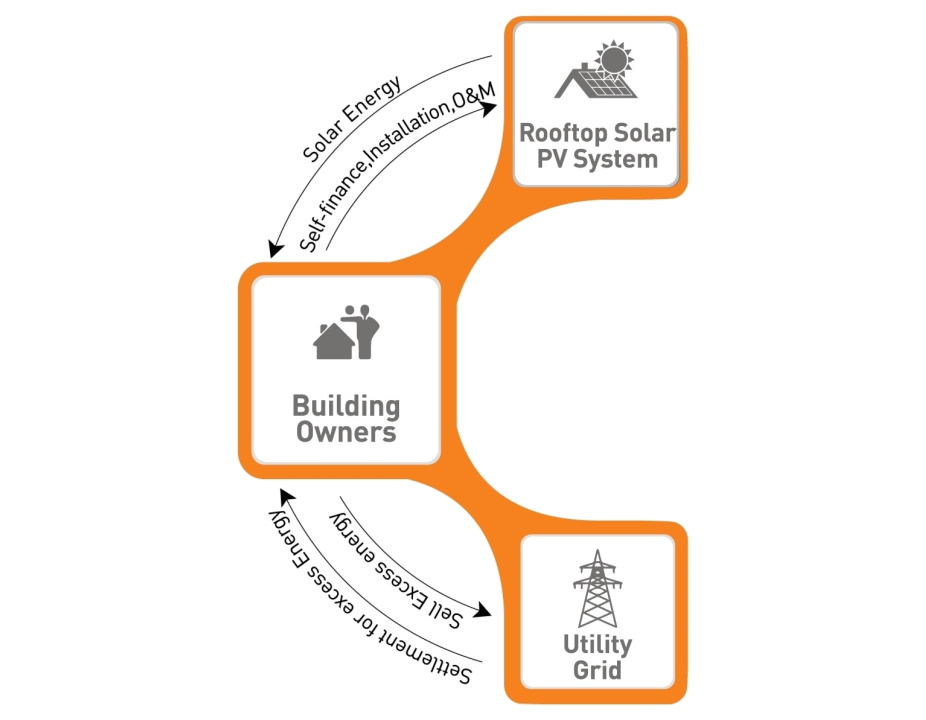On-grid Solar System
On-grid solar systems generate power using a solar PV power system. These systems convert sunlight to energy, some of which may be consumed, and the excess power that is generated is
sent to the utility grid.
The owner of this system receives compensation for the extra power that was fed to the grid.
These systems work in collaboration with the power grid. In the case when there is not enough sunlight to meet your business/owner's needs, the system runs on the power supplied by the
grid.
Applications
Businesses can rely on on-grid solar systems to meet their daily requirements, as well as earn income from the excess power generated. On bright sunny days, buildings can generate
enough solar energy to power appliances, lights, water heating systems, etc.
Advantages:
- On-grid solar systems are very cost-effective and easy to install.
- Businesses can recoup the cost of their investment by offsetting electricity bills in just 3-8 years. If a private, commercial or industrial building sets up a solar PV rooftop
system it will be eligible to avail of an 'Accelerated Depreciation Benefit'.
Power Outages with On-Grid Systems:
- By connecting to the grid, you get access to electricity whenever you need it. However, you're also subject to some rules. If you have a grid-tied solar system and the grid
goes down, you will not have electricity, unless you opt for a grid-tied solar system with battery backup.
- Why is this? The shutdown of solar systems when the grid goes down is required by the Underwriters Laboratories (UL 1741). This is for the safety of utility workers who are
fixing the power lines.
Electricity Bills with On-Grid System :
- If you opt for a grid-tied system, you could still see a few minimal charges on your electricity bill, even if your solar system provides 100% of your electricity.
- One type of charge you may continue to see is the service fee or delivery charge. This is the cost levied on customers for connecting their homes or business to the grid.
Capex Model
In this model, the customer generally hires a solar EPC (Engineering, Procurement, and Construction) company that provides the installation of the entire solar power system and hand
over access to the consumer. One of the major advantages of this model is that the customer is eligible to claim the accelerated depreciation to gain tax savings from the government.
Benefits of CAPEX Model
- Allows Residential, Industrial, and Commercial to own the system.
- The customer sets up the rooftop solar project with the intent to reduce his power costs.
- The customer bears the entire capital expenditure of the project and gets benefit by selling the surplus power generated to the DISCOM.
- The gains from tariff savings accrue to the roof and solar power plant owner. Also, Commercial & Institutional clients can claim the accelerated depreciation.

